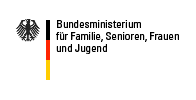Aspects
Environment - Aspects
- Division of labour: Traditional patterns in the division of wage-earning and reproduction labour result in different mobility and consumption behaviour in women and men. Gender Mainstreaming poses the question as to what the impact of this is on sustained treatment of energy resources and raw materials.
- Awareness: There is a significant gap between the environmentally-oriented attitudes and behaviour of the sexes. So it is important to address the environmental awareness of men and women differently in order to have any promise of success.
- Perception: Men still frequently perceive environmental and health risks differently than women, through “masculine spectacles”. They tend to be more oriented to technology, more prepared to take risks and pay less attention to prevention. It is again important to make men and women aware of environmental problems by addressing them as specific target groups.
- Access: The access of women and men to research and paid employment is not equally good, so they have unequal opportunities for influencing the design of new products and technologies. What measures would provide better access chances for women – and so lead to more sustained forms of production?
- Clichés: Traditional role clichés have been fixed in a generally gender-differentiated perception of “masculine” production and “feminine” consumption, and of “masculine” culture and “feminine” nature. The aims of Gender Mainstreaming in environmental policy are to recognise gender clichés in environmental protection discourse for what they are and dismantle them.
Further reading:
Hayn, Doris/ Schultz, Irmgard: Gender Impact Assessment im Bereich Strahlenschutz und Umwelt – Abschlussbericht, Institut für sozial-ökologische Forschung (ISOE) im Auftrag des Bundesministeriums für Umwelt, Naturschutz und Reaktorsicherheit, Frankfurt a. M. 2002
Hayn, Doris/ Schultz, Irmgard: Wissenschaftliche Begleitung zur Einführung des Gender Mainstreaming in die Regelpraxis des BMU – Abschlussbericht, Institut für sozial-ökologische Forschung (ISOE), Frankfurt a. M. 2004
Weller, Ines et al.: Gender Impact Assessment der Angewandten Umweltforschung Bremen (GIA). Abschlussbericht zum Forschungsvorhaben 134, Bremen/Frankurt am Main 2003
Weller, Ines et al.: Geschlechterverhältnisse, nachhaltige Konsummuster und Umweltbelastungen, in: Balzer, Ingrid et al.: Sozialökologische Forschung, München 2002
Buchholz, Kathrin/ Rüth, Petra van: Stand der Umsetzung der Frauenforderungen der Agenda 21 in der BRD: fünf Jahre nach dem Erdgipfel, Forum Umwelt und Entwicklung, Bonn 1997.
Hessisches Ministerium für Umwelt, Energie, Jugend, Familie und Gesundheit (Ed.); Meier-Darimont, Gabriele (Red): Dokumentation der Fachtagung Frauen und Lokale Agenda 21 am 17.6.1998 in Erbach (Odenwald), eine Veranstaltung von Life e.V., FrauenUmweltNetz, Wiesbaden 1998.
Hamburger Senatsamt für die Gleichstellung: Frauen - Nachhaltigkeit - Agenda 21: Dokumentation der Veranstaltung vom 2. Oktober 1997 und der Zukunftswerkstatt vom 26. März 1998; fachliche Kooordination: Inge Kovarik, Hamburg 1998.
Institut für sozial-ökologische Forschung (ISOE): Leitfaden zur Integration von Genderfragen in ein Sozioökonomisches Monitoring in Nationalparken. Umsetzung von Gender Mainstreaming in sozioökonomischen Erhebungen, Frankfurt 2005
Bundesministerium für Umwelt, Naturschutz und Reaktorsicherheit, Referat für Öffentlichkeitsarbeit: Umweltpolitik. Konferenz der Vereinten Nationen für Umwelt und Entwicklung im Juni 1992 in Rio de Janeiro, Dokumente: Agenda 21, Kapitel 24, Bonn
Bouvret, Florence: Towards Sustainable Development? Gender Mainstreaming and Environmental Integration in the European Commission: A comparative Analysis, Brüssel 2001
Razavi, Shahra; Miller, Carol: Gender Mainstreaming - A Study of Efforts by the UNDP, the World Bank and the ILO to Institutionalize Gender Issues; United Nations Research Institute for Social Development (Ed.), Genf 1995
Schultz, Irmgard: Zum Instrument eines Gender Impact Assessment (dargestellt am Beispiel der geschlechtsspezifischen Wirkungsabschätzung des 5. Rahmenprogramms der EU), in: Gender & Environment in der praktischen Umweltpolitik, Reihe "Dokumentationen der Heinrich Böll Stiftung" Nr. 10, Berlin 2001
Nebelung, Andreas; Poferl, Angelika; Schultz, Irmgard: Geschlechterverhältnisse - Naturverhältnisse. Feministische Auseinandersetzungen und Perspektiven der Umweltsoziologie, Soziologie und Ökologie Nr. 6, Opladen 2001.
Genanet -focal point gender, environment, sustainability
Institute for Social-ecological Research (ISOE)
Hayn, Doris/ Schultz, Irmgard: Wissenschaftliche Begleitung zur Einführung des Gender Mainstreaming in die Regelpraxis des BMU – Abschlussbericht, Institut für sozial-ökologische Forschung (ISOE), Frankfurt a. M. 2004
Weller, Ines et al.: Gender Impact Assessment der Angewandten Umweltforschung Bremen (GIA). Abschlussbericht zum Forschungsvorhaben 134, Bremen/Frankurt am Main 2003
Weller, Ines et al.: Geschlechterverhältnisse, nachhaltige Konsummuster und Umweltbelastungen, in: Balzer, Ingrid et al.: Sozialökologische Forschung, München 2002
Buchholz, Kathrin/ Rüth, Petra van: Stand der Umsetzung der Frauenforderungen der Agenda 21 in der BRD: fünf Jahre nach dem Erdgipfel, Forum Umwelt und Entwicklung, Bonn 1997.
Hessisches Ministerium für Umwelt, Energie, Jugend, Familie und Gesundheit (Ed.); Meier-Darimont, Gabriele (Red): Dokumentation der Fachtagung Frauen und Lokale Agenda 21 am 17.6.1998 in Erbach (Odenwald), eine Veranstaltung von Life e.V., FrauenUmweltNetz, Wiesbaden 1998.
Hamburger Senatsamt für die Gleichstellung: Frauen - Nachhaltigkeit - Agenda 21: Dokumentation der Veranstaltung vom 2. Oktober 1997 und der Zukunftswerkstatt vom 26. März 1998; fachliche Kooordination: Inge Kovarik, Hamburg 1998.
Institut für sozial-ökologische Forschung (ISOE): Leitfaden zur Integration von Genderfragen in ein Sozioökonomisches Monitoring in Nationalparken. Umsetzung von Gender Mainstreaming in sozioökonomischen Erhebungen, Frankfurt 2005
Bundesministerium für Umwelt, Naturschutz und Reaktorsicherheit, Referat für Öffentlichkeitsarbeit: Umweltpolitik. Konferenz der Vereinten Nationen für Umwelt und Entwicklung im Juni 1992 in Rio de Janeiro, Dokumente: Agenda 21, Kapitel 24, Bonn
Bouvret, Florence: Towards Sustainable Development? Gender Mainstreaming and Environmental Integration in the European Commission: A comparative Analysis, Brüssel 2001
Razavi, Shahra; Miller, Carol: Gender Mainstreaming - A Study of Efforts by the UNDP, the World Bank and the ILO to Institutionalize Gender Issues; United Nations Research Institute for Social Development (Ed.), Genf 1995
Schultz, Irmgard: Zum Instrument eines Gender Impact Assessment (dargestellt am Beispiel der geschlechtsspezifischen Wirkungsabschätzung des 5. Rahmenprogramms der EU), in: Gender & Environment in der praktischen Umweltpolitik, Reihe "Dokumentationen der Heinrich Böll Stiftung" Nr. 10, Berlin 2001
Nebelung, Andreas; Poferl, Angelika; Schultz, Irmgard: Geschlechterverhältnisse - Naturverhältnisse. Feministische Auseinandersetzungen und Perspektiven der Umweltsoziologie, Soziologie und Ökologie Nr. 6, Opladen 2001.
Genanet -focal point gender, environment, sustainability
Institute for Social-ecological Research (ISOE)
erstellt von Administrator
—
zuletzt verändert:
02.01.2010 20:08





